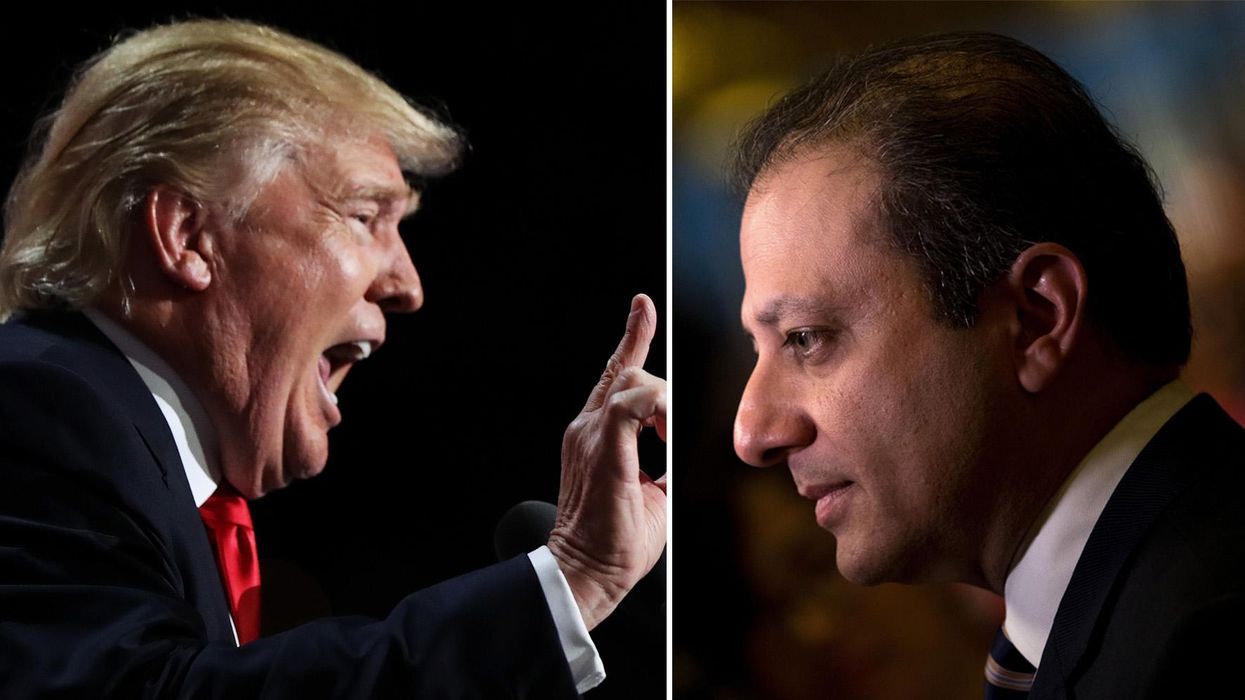Louis Dor
Mar 13, 2017

Picture:
Getty/edited by indy100
If you were unaware, on Saturday the United States Justice Department instructed the remaining 46 US attorneys appointed by President Barack Obama to step down.
45 did so, one refused.
Preet Bharara, who has served in the role since 2009, is a prominent anti-corruption and insider trading investigator.
President Donald Trump had attempted to call Bharara on Thursday, two days prior to his eventual firing, to thank him for his service and to wish him luck.
Mr Bharara, aware that Trump was attempting to contact him, called the chief of staff to attorney general Jeff Sessions to say that the President was inappropriate to contact US attorneys.
Since then, news broke that Bharara did not resign, as he disclosed in a tweet:
The Trump administration did not approve of this handling of the situation, as an anonymous aide told the Wall Street Journal:
The U.S. attorneys are political appointees, and all 46 of the holdovers from the Obama administration received the same resignation letter. It’s fair to say that 45 of the 46 behaved in a manner befitting the office.
As much as Preet wants everything to be about Preet, everyone was treated the same way.
Preet replied in response:
It was my understanding that the President himself has said anonymous sources are not to be believed.
We expect that Preet's response was in jest, acknowledging Trump's quoted disapproval of stories based on anonymous sources, but it acknowledges a very poor argument in the process.
Anonymous sources are an important part of journalism for a number of reasons:
- Whistleblowers can inform the press of illicit activities in institutions. Sometimes their anonymity is required.
- If there is a chance the person speaking would become vulnerable following the disclosure, their anonymity may be necessary for the story to be told.
- It makes it easier for staff to talk without fear of identification, or brief off the record about stories the public should know, possibly to pursue through official channels.
- On the reverse, being on-the-record does not guarantee truth. You can look to Sean Spicer for proof of that.
This doesn't mean anonymous sources are always true or correct. They are simply to inform a story - it's up to the journalist to check for the truth and follow up.
In short, anonymous sources don't make journalism sloppy, sloppy journalism does.
In addition, Trump himself is a hypocrite on the subject - he's only opposed leakers since leakers started being a problem for him rather than a boon to his campaign slogans.
After all, Donald used to love leaks.
What happened? He took office.
HT Nicole Hong
More: It really looks like Trump purged 46 US Attorneys because Fox News told him to
Top 100
The Conversation (0)













